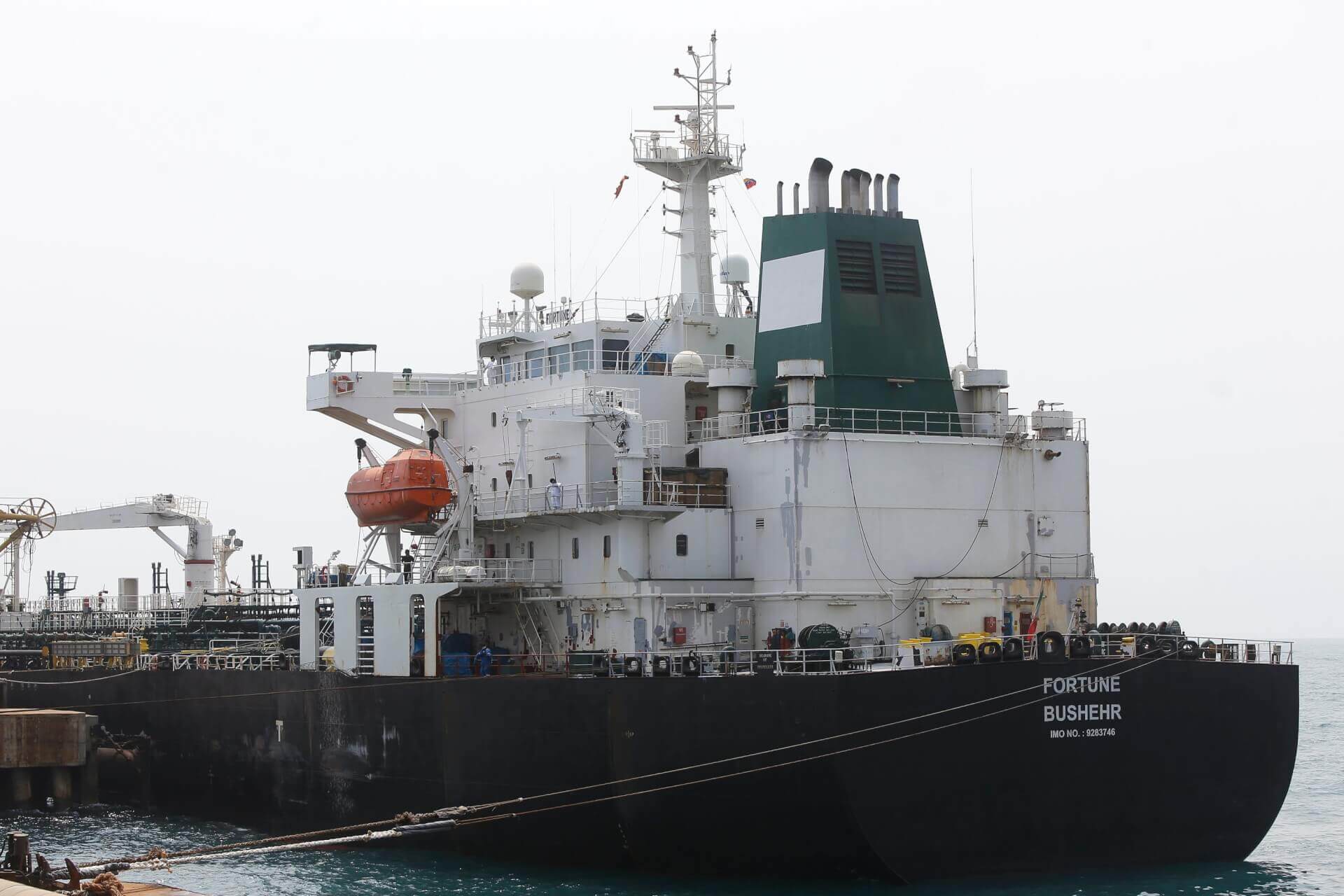In an open violation of US sanctions, Iran has reportedly sent its biggest fleet of oil tankers to Venezuela in order to help the isolated country with its crippling fuel shortage. Some of the vessels are also set to participate in exporting Venezuelan crude, in what is a rising indication that President Nicolás Maduro is attempting to initiate a recovery of the country’s oil industry.
The Iranian fleet consists of about ten vessels containing three times the amount of oil Tehran sent in a shipment back in October. Iran has been aiding Venezuela to overcome a fuel shortage due to the mismanagement of its oil sector and crippling US sanctions. The aforementioned vessels are expected to be used by Venezuela to export crude oil to Iran after unloading the Iranian shipment. Other than Iran, Venezuela has already resumed direct shipments of its crude oil to China, with Venezuelan oil exports tripling in November to 500,000 barrels per day.
In the recent past, Iran and Venezuela have strengthened their ties to fight back against US sanctions. Maduro’s socialist government has increasingly turned to Iran to import gas and export crude oil, especially after China stopped buying crude in 2019. Simultaneously, it is expected to revive a certain amount of Iran’s oil exports, with both countries having been badly hit by US sanctions that are aimed at halting their crude oil production. Tehran is also providing Caracas with essential chemicals and materials needed to refine its oil reserves, which are the world’s largest. In fact, Iranian Foreign Minister Javad Zarif recently visited Venezuela, where authorities of the two countries hailed the “strategic alliance” and “brotherhood” between the two sides.
Both countries have criticised sanctions imposed by the US administration, accusing Washington of engaging in “economic terrorism” and “crimes against humanity” against vulnerable populations amidst a crippling global pandemic. With respect to Tehran’s oil shipments to Caracus, Iranian FM Zarif even sent a letter to UN Secretary-General Antonio Guterres in May, warning against “America’s movements in deploying its navy to the Caribbean in order to intervene and create disruption in [the] transfer of Iran’s fuel to Venezuela”.
US sanctions on Venezuela stretch back over a decade, with Washington significantly expanding its “maximum pressure” strategy after authoritarian leader Maduro was accused of rigging the 2018 election to maintain his incumbency. In January 2019, the American Department of the Treasury’s Office of Foreign Assets Control (OFAC) issued sanctions against state-owned oil company PdVSA, which is a primary source of Venezuela’s income and foreign currency, on charges of embezzlement and corruption. These restrictive measures have pushed Venezuela’s oil exports to their lowest levels in almost 80 years, which has left the already embattled and cash-strapped country struggling to meet the basic nutritional and medicinal needs of its population.
At the same time, the Trump Administration has walked out of the historic Joint Comprehensive Plan of Action (JCPOA), popularly known as the Iran Nuclear Deal, over the allegations that Iran maintained nuclear ambitions and used sanctions relief to fund foreign militias and advance missile technology.
Against this backdrop, a common animosity against US sanctions brought Maduro and Rouhani together to improve Venezuela-Iran ties. Iran has sent Venezuela humanitarian assistance and crucial resources to deal with the coronavirus pandemic, its enduring economic crisis, and continued US sanctions.
However, observers fear that these transactions are not limited to just humanitarian aid and oil deals. In fact, Sen, Marco Rubio, an influential advisor to Trump on Latin American affairs, said the expiration of that arms embargo in October could lead to Iran “beginning to share weaponry with the Venezuelan military.” In fact, Maduro himself has said that purchasing missiles from Iran may be a “good idea”. Given these developments, the US special representative for Iran and Venezuela, Elliott Abrams, warned of additional sanctions on the two countries.
However, given Iran’s latest shipment of oil to Venezuela and Venezuela’s shipment of crude oil to China, both countries appear to be fully aware of and prepared for a flurry of new US sanctions.
Iran Sends its Biggest Fleet of Oil Tankers to Venezuela, Ignoring US Sanctions
Both countries appear to be fighting back against crippling US sanctions by reinvigorating their oil industries.
December 8, 2020

Source: AP PHOTO
